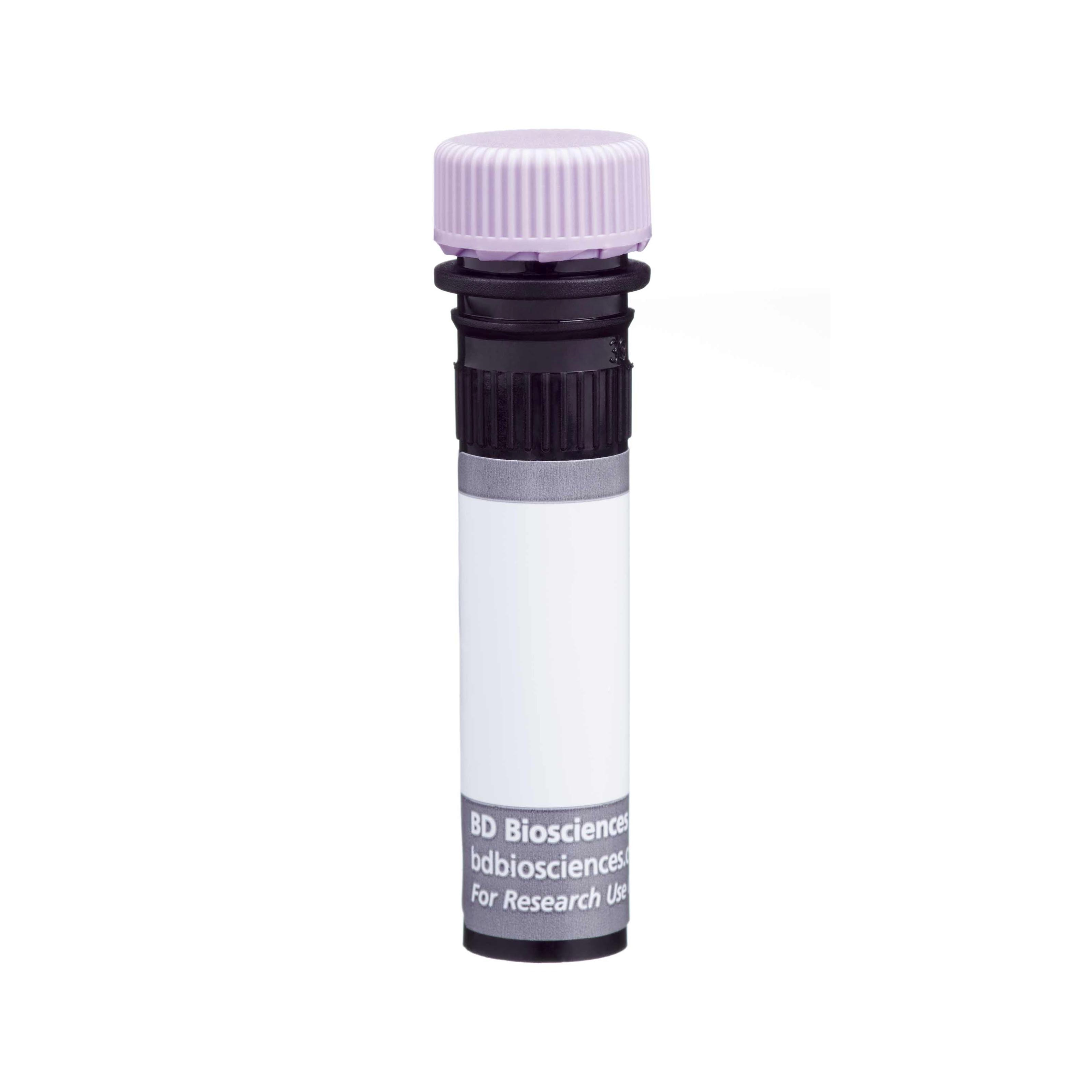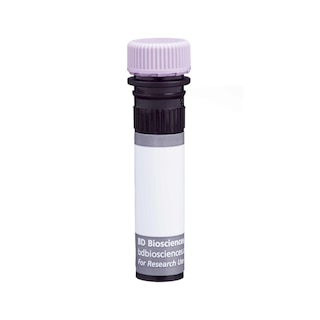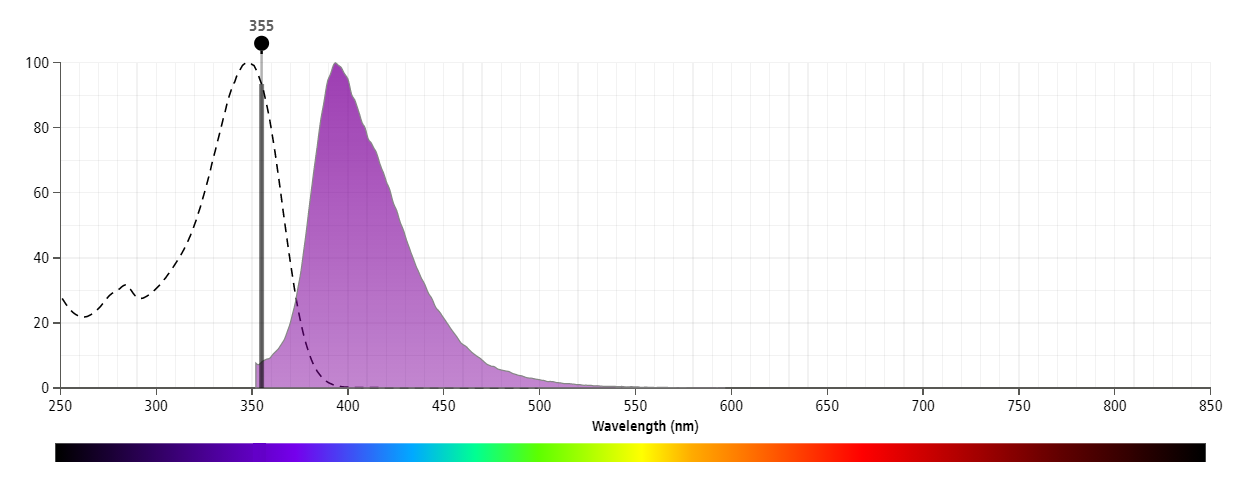Old Browser
This page has been recently translated and is available in French now.
Looks like you're visiting us from {countryName}.
Would you like to stay on the current country site or be switched to your country?


Regulatory Status Legend
Any use of products other than the permitted use without the express written authorization of Becton, Dickinson and Company is strictly prohibited.
Preparation And Storage
Recommended Assay Procedures
For optimal and reproducible results, BD Horizon Brilliant Stain Buffer should be used anytime two or more BD Horizon Brilliant dyes (including BD OptiBuild Brilliant reagents) are used in the same experiment. Fluorescent dye interactions may cause staining artifacts which may affect data interpretation. The BD Horizon Brilliant Stain Buffer was designed to minimize these interactions. More information can be found in the Technical Data Sheet of the BD Horizon Brilliant Stain Buffer (Cat. No. 563794).
Product Notices
- This antibody was developed for use in flow cytometry.
- The production process underwent stringent testing and validation to assure that it generates a high-quality conjugate with consistent performance and specific binding activity. However, verification testing has not been performed on all conjugate lots.
- Researchers should determine the optimal concentration of this reagent for their individual applications.
- An isotype control should be used at the same concentration as the antibody of interest.
- Caution: Sodium azide yields highly toxic hydrazoic acid under acidic conditions. Dilute azide compounds in running water before discarding to avoid accumulation of potentially explosive deposits in plumbing.
- For fluorochrome spectra and suitable instrument settings, please refer to our Multicolor Flow Cytometry web page at www.bdbiosciences.com/colors.
- Please refer to www.bdbiosciences.com/us/s/resources for technical protocols.
- BD Horizon Brilliant Stain Buffer is covered by one or more of the following US patents: 8,110,673; 8,158,444; 8,575,303; 8,354,239.
- BD Horizon Brilliant Ultraviolet 395 is covered by one or more of the following US patents: 8,158,444; 8,575,303; 8,354,239.
Companion Products






The 14.8 monoclonal antibody specifically recognizes an exon A-dependent epitope of the CD45 protein, which is found at high density on B cells and at low density on peripheral T cytotoxic/suppressor cells and a very small subset of thymocytes. Nearly all B-lineage cells, including B-cell precursors in fetal liver and adult bone marrow and Ig-secreting cells, but not hematopoietic stem cells or myeloid progenitors, have been reported to be detectable by mAb 14.8. CD45 is a member of the Protein Tyrosine Phosphatase (PTP) family: Its intracellular (COOH-terminal) region contains two PTP catalytic domains, and the extracellular region is highly variable due to alternative splicing of exons 4, 5, and 6 (designated A, B, and C, respectively), plus, differing levels of glycosylation. The CD45 isoforms detected in the mouse are cell type-, maturation-, and activation state-specific. The CD45 isoforms play complex roles in T-cell and B-cell antigen receptor signal transduction. mAb 14.8 has been reported to enhance the proliferative effect of PHA on purified spleen T cells, possibly by replacing a signal normally delivered by accessory cells, to enhance isotype switching during in vitro B-cell responses, and to inhibit antigen-induced p21 [ras] activation.
The antibody was conjugated to BD Horizon™ BUV395 which is part of the BD Horizon Brilliant™ Ultraviolet family of dyes. This dye has been exclusively developed by BD Biosciences to have minimal spillover into other detectors, making it an optimal choice for multicolor flow cytometry. With an Ex Max at 348 nm and an Em Max at 395 nm, BD Horizon BUV395 can be excited with a 355 nm laser and detected with a 379/28 filter.

Development References (10)
-
George A, Rath S, Shroff KE, Wang M, Durdik JM. Ligation of CD45 on B cells can facilitate production of secondary Ig isotypes. J Immunol. 1994; 152(3):1014-1021. (Clone-specific: Functional assay, Stimulation). View Reference
-
Goff LK, Huby RD. Characterization of constitutive and strain-dependent subsets of CD45RA+ cells in the thymus. Int Immunol. 1992; 4(11):1303-1311. (Biology). View Reference
-
Hathcock KS, Laszlo G, Dickler HB, et al. Expression of variable exon A-, B-, and C-specific CD45 determinants on peripheral and thymic T cell populations. J Immunol. 1992; 148(1):19-28. (Clone-specific: Flow cytometry). View Reference
-
Inoue T, Asano Y, Matsuoka S, et al. Distinction of mouse CD8+ suppressor effector T cell clones from cytotoxic T cell clones by cytokine production and CD45 isoforms. J Immunol. 1993; 150(6):2121-2128. (Clone-specific: Flow cytometry). View Reference
-
Johnson P, Maiti A, Ng DHW. CD45: A family of leukocyte-specific cell surface glycoproteins. In: Herzenberg LA, Weir DM, Herzenberg LA, Blackwell C , ed. Weir's Handbook of Experimental Immunology, Vol 2. Cambridge: Blackwell Science; 1997:62.1-62.16.
-
Kawauchi K, Lazarus AH, Rapoport MJ, Harwood A, Cambier JC, Delovitch TL. Tyrosine kinase and CD45 tyrosine phosphatase activity mediate p21ras activation in B cells stimulated through the antigen receptor. J Immunol. 1994; 152(7):3306-3316. (Clone-specific: Blocking, Functional assay, Immunoprecipitation). View Reference
-
Kincade PW, Lee G, Watanabe T, Sun L, Scheid MP. Antigens displayed on murine B lymphocyte precursors. J Immunol. 1981; 127(6):2262-2268. (Clone-specific: Depletion, Flow cytometry). View Reference
-
Kincade PW. Formation of B lymphocytes in fetal and adult life. Adv Immunol. 1981; 31:177-245. (Immunogen). View Reference
-
Marvel J, Poirier G, Lightstone E. Anti-CD45RA antibodies increase the proliferation of mouse T cells to phytohemagglutinin through the interleukin 2/interleukin 2 receptor pathway. Eur J Immunol. 1989; 19(11):2005-2010. (Biology). View Reference
-
Rogers PR, Pilapil S, Hayakawa K, Romain PL, Parker DC. CD45 alternative exon expression in murine and human CD4+ T cell subsets. J Immunol. 1992; 148(12):4054-4065. (Clone-specific: Flow cytometry). View Reference
Please refer to Support Documents for Quality Certificates
Global - Refer to manufacturer's instructions for use and related User Manuals and Technical data sheets before using this products as described
Comparisons, where applicable, are made against older BD Technology, manual methods or are general performance claims. Comparisons are not made against non-BD technologies, unless otherwise noted.
For Research Use Only. Not for use in diagnostic or therapeutic procedures.
Report a Site Issue
This form is intended to help us improve our website experience. For other support, please visit our Contact Us page.